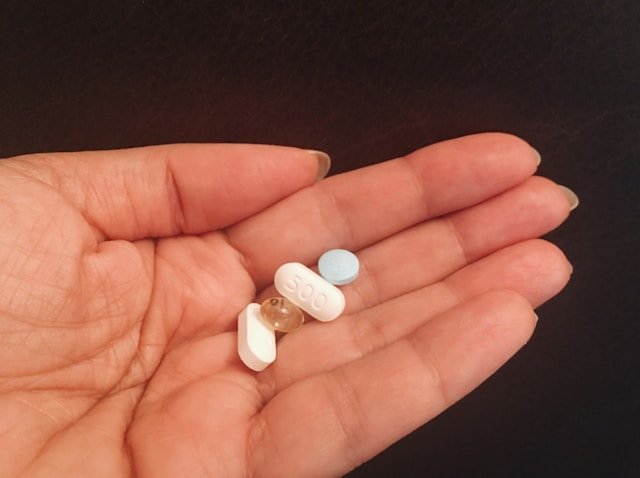Capivasertib, a drug that slows incurable breast cancer and improves life quality, is now NHS-approved
A revolutionary breast cancer drug, Capivasertib, has today been approved for NHS use — offering fresh hope to thousands living with the most common form of incurable breast cancer.
Following two decades of UK-led research, the National Institute for Health and Care Excellence (NICE) has greenlit the drug for public treatment. Taken alongside standard hormone therapy, Capivasertib has been shown in clinical trials to double the time before cancer progression — a breakthrough hailed as a “game-changer” by both scientists and patients.
For 53-year-old Ellen Hughes, from North Wales, Capivasertib has already transformed her life. Diagnosed with primary breast cancer in 2008, she was devastated to learn eight years later that the disease had returned and spread. At 46, with three young children, the future looked painfully uncertain.
But since beginning treatment with Capivasertib in February via private healthcare, Hughes has experienced a dramatic turnaround.
“I don’t look at myself anymore as a dying person,” she told Sky News. “I look at myself as a thriving person, who will carry on thriving for as long as I possibly can.”
For Hughes, the significance of a few extra months cannot be overstated. “In cancer, and the land that we live in, we can do a lot in six months,” she said. “It gave me the chance to see my daughter get married.”
The drug, now freely available through the NHS, is aimed at patients whose tumours carry mutations or alterations in one of three genes — PIK3CA, AKT1 or PTEN — which appear in around half of all cases of advanced breast cancer.
Capivasertib’s approval is being celebrated as a major milestone for British science. Professor Nicholas Turner, from the Institute of Cancer Research, led the 20-year-long project that developed and tested the treatment.
“This is a great success story for British science,” said Prof Turner. “We need new drugs that will help our existing therapies work for longer, and that’s exactly what Capivasertib does. It gives patients precious extra time with their families.”
The new drug also presents a gentler option compared to traditional treatments like chemotherapy, delaying the need for more aggressive and debilitating interventions. Patients report significantly fewer side effects, with many able to maintain a higher quality of life during treatment.
Capivasertib’s mechanism works by targeting and shutting down pathways used by cancer cells to grow and resist hormonal therapies — a known problem in metastatic or advanced-stage breast cancers.
Prof Turner is now calling for urgent genetic testing for all patients with advanced breast cancer to identify those who may benefit from Capivasertib immediately. He believes hundreds could begin receiving the drug within weeks, with thousands more benefiting in the long term.
Embed from Getty Images“This isn’t just about extending life — it’s about improving it,” said Turner. “For patients, having more good days with loved ones, without the shadow of aggressive treatment, is life-changing.”
NHS England has not confirmed how many patients are expected to receive the drug initially, but its approval has already sparked celebration among cancer support groups and charities.
Ellen Hughes believes wider access to Capivasertib will make a real difference for countless families. “It’s absolutely brilliant that this is now available through the NHS. It’s given me my life back.”
BBC
A ground-breaking drug, Capivasertib, is now available on the NHS in England, offering new hope to around 3,000 women annually with advanced hormone receptor-positive breast cancer. The targeted therapy, which blocks the AKT protein that drives cancer growth, has been hailed as one of the most effective treatments for incurable cases. In trials, the drug doubled cancer progression time from 3.6 to 7.3 months when used with hormone therapy and shrank tumours in 23% of patients. Linda Kelly, 67, credits it with giving her four extra years of life. Although welcomed by experts and charities, Breast Cancer Now criticised the delayed approval by NICE and urged faster access and broader UK availability. Capivasertib is suitable for those with specific gene mutations and offers a less toxic alternative to chemotherapy. NHS England is now urged to expand genetic testing to ensure swift treatment access.
THE TELEGRAPH
A twice-daily pill, Capivasertib (Truqap), has been approved for NHS use in England following a reversal by NICE, offering hope to up to 3,000 women annually with incurable, advanced HR-positive, HER2-negative breast cancer. Developed by AstraZeneca and British researchers over decades, the drug targets PIK3CA, AKT1, or PTEN mutations, slowing disease progression by over four months when combined with hormone therapy fulvestrant. Originally rejected for cost-effectiveness, Capivasertib is now available through NHS cancer drug funding. Experts called the move a landmark in British cancer science, though campaigners criticised the delay. Clinical leaders praised the drug’s ability to delay chemotherapy, offering patients “precious extra time.” The Institute of Cancer Research lauded it as a major breakthrough, while calls continue for faster approvals and widespread genetic testing to identify eligible patients. NHS England noted the treatment won’t suit all but marks a personalised care milestone.
THE GUARDIAN
A twice-daily pill called Capivasertib (Truqap) will now be offered on the NHS in England and Wales after a U-turn by NICE, benefiting up to 3,000 women annually with HR-positive, HER2-negative breast cancer that has spread and contains PIK3CA, AKT1 or PTEN mutations. The AstraZeneca-developed drug targets the AKT protein that fuels tumour growth, slowing disease progression by over four months when paired with hormone therapy.
Following initial rejection due to cost concerns, NICE reversed its decision, calling the treatment a good use of NHS resources. The Institute of Cancer Research and leading oncologists hailed the move as a “landmark moment” after decades of UK-led research. Cancer charities welcomed the approval but criticised delays and urged prompt genetic testing and swift consideration by Scottish authorities. Advocates say the breakthrough will offer patients more time and a better quality of life.
